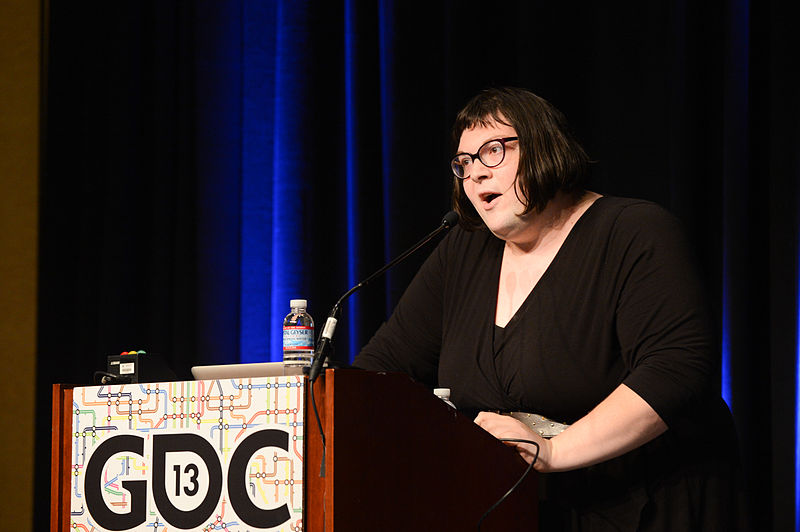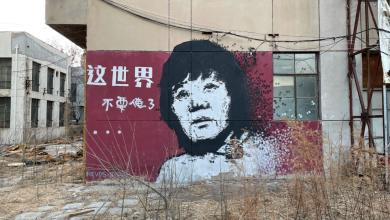Anna Anthropy: Dys4ia And Re-Defining The Indie Game
The world of video game design has long been dominated by men – Anna Anthropy, perhaps, knows this better than anyone.
Anthropy, a transgender freelance game designer, is a vocal advocate of accessibility for “women, people of color, and queer and trans folk” in her field. She argues that the demands of the video game industry and gaming culture are to blame for disproportionately excluding these marginalized groups.
Her 2013 keynote speech “Difference, Games and Class” explores this exclusion, citing the obstacles that tend to affect young transgender adults in particular: poverty, homelessness, and unemployment, to name a few.
You think a person in that situation can shell out a hundred dollars for the “Professional” version of Game Maker? The $260 required to participate in the IGF [Independent Games Festival]? Does that person have the time to commit to learning Python? Does that mean this person isn’t “serious” about game development? Does that mean this person doesn’t have anything valuable to tell us about play, about the human condition?
Anthropy had to overcome many of these same barriers while developing Dys4ia, a minimalistic art game chronicling her experiences with hormone replacement therapy. Dys4ia is an unconventional and heavily narrative-driven game that guides the player through a series of simple yet symbolic tasks – navigating a women’s restroom, bouncing negative comments off a shield, literally jumping through hoops to find a clinic. All of these virtual tasks represent the social, medical, and emotional struggles that accompanied Anthropy’s transition in real life.
Despite addressing themes of frustration and pain, Dys4ia ultimately carries a message of hope. Anthropy described the game as her attempt to “create an ‘it gets better’ for other trans women.” The game also touches upon the damaging effects of feminism without intersectionality and trans-inclusiveness, a topic she has frequently addressed in her work and writing.
Dys4ia was widely acclaimed for its simplicity, poignancy, and honesty, a small but important breakthrough in the indie video game scene. The game’s success came as a surprise, as Anthropy points out that even our expectations for “unconventional” games tend to equate technological complexity, not diverse representation, with progressiveness.
“When we call for experimental game submissions, what we’re usually looking for is games with interesting physics simulations, not games about being a trans person of color,” she states, adding that creating these attractive and elaborate features is nearly impossible without formal education – yet another factor that tends to shut out disadvantaged people from the field of game design.
The solution, she believes, lies in the development of free and easy-to-use tools that allow a wider demographic to create and publish games regardless of their resources, skill level, or experience. This includes websites and software that simplify the programming process and eliminate the fees usually associated with distributing games to a public audience.
In addition to publicly advocating for better accessibility, Anthropy continues to promote these resources on her blog in the hopes that marginalized groups can make begin making breakthroughs in the world of game design as well. “[T]eaching a disempowered person to make a game is so much more valuable an act than getting a privileged person to acknowledge the existence of the underprivileged,” she says. “Also: it accomplishes that goal as well.





